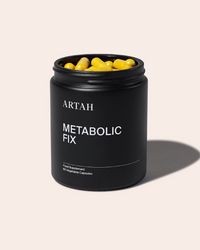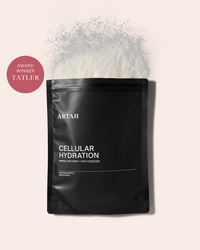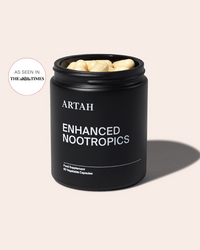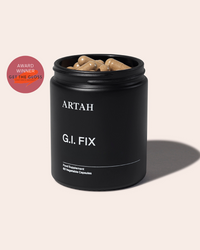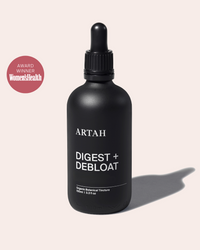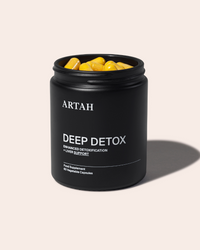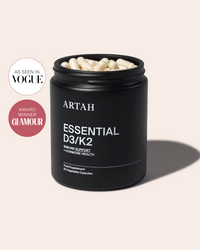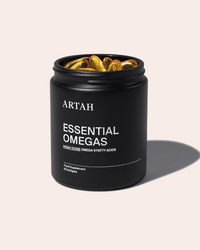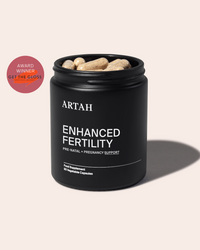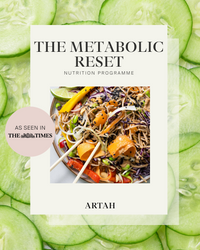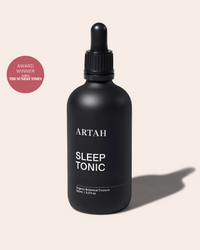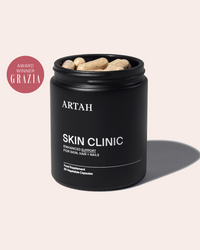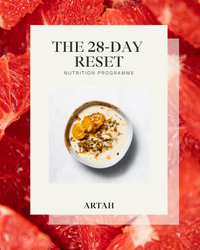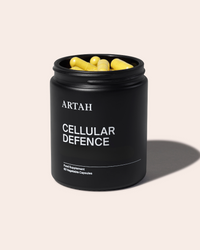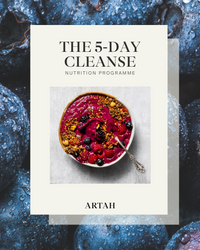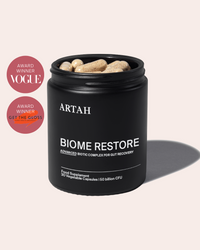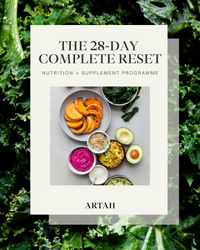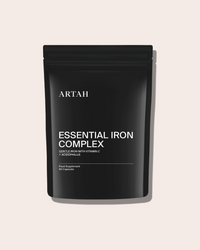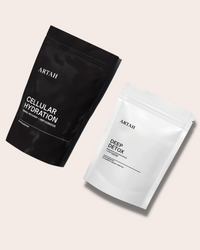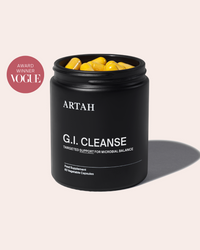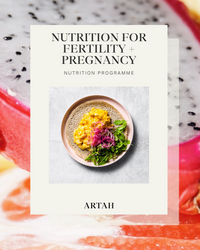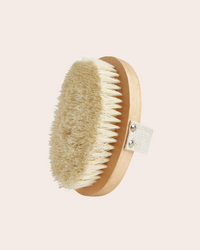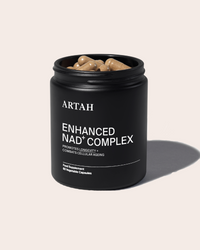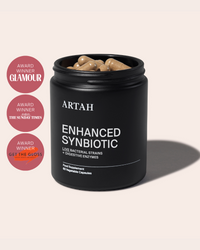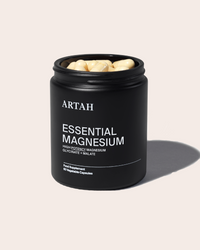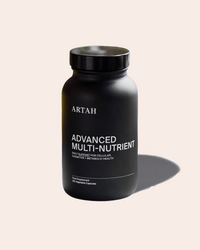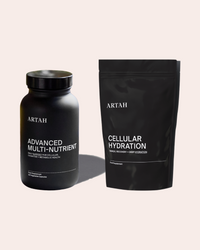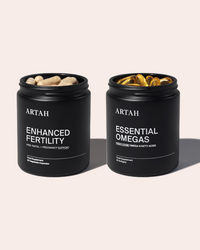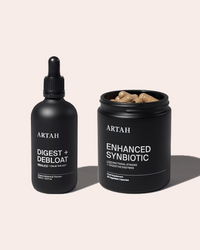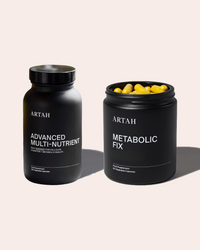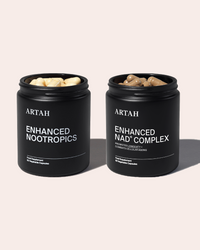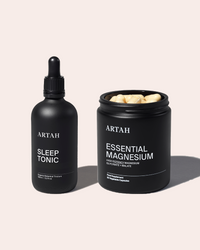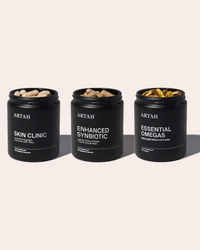A Nutritionist's Guide To Great Sex
The internet is awash with aphrodisiac foods that promise a Valentine’s boost to your libido,
but an oyster dinner once a year isn’t the road to a fulfilling sex life. Our desire to have sex, or libido, is governed by a variety of physical, hormonal, psychological and nutritional factors, so taking a holistic approach is the best way to cultivate a libido-enhancing environment. Here’s how to optimise your sex life from a lifestyle perspective.
Vagina + Vulval Support Are a Must
Over the last decade we’ve been learning just how important Vitamin D is to so many aspects of health, and sexual health is no different. Suboptimal Vitamin D status can have a significant effect on desire because of its influence on the mucosal membrane of the vaginal wall, which not only contributes to the health of vaginal tissue, prevents atrophy in perimenopause/menopause, and maintains lubrication. Clinical studies have also shown that Vitamin D supplementation improves desire, arousal, and lubrication after only 8 weeks of use.
Testosterone is Close Behind
Testosterone is an important driver of libido in both men and women. The good news is – one of the best ways to improve testosterone is accessible to everyone, and it’s a focus on muscle. Improving muscle mass, and therefore strength training, is one of the best ways to keep testosterone up, so think weights and resistance-based exercise to target sex-drive. Nutrition also plays an important role; Vitamin B12 is required to produce adequate levels of libido-boosting testosterone, as is Zinc and Vitamin D. Insulin dysregulation can suppress testosterone production, so keeping blood sugar in check is also important.
Estrogen Balance is Key
Estrogen is an important driver of libido and sexual function in women. Too much (otherwise known as estrogen dominance) can lead to vaginal dryness, loss of libido, and other sex-drive-squashing symptoms like painful breasts, fatigue, depression and water retention. Too little, and you’re looking at similar symptoms (as commonly experienced in perimenopause/menopause). Estrogen dominance is multi-factorial, so it’s not always a straightforward answer. Gut imbalances in the estrobolome, the bacteria that influence estrogen metabolism, can play a major part, as can a sluggish liver. Probiotic and liver support is a good place to start to help support hormone balance if you’re on the dominant side of the equation. If you’re on the low side and for hormone support throughout the perimenopausal years, Essential GLA is our go-to to help regulate estrogen levels. Chronic stress can also affect estrogen levels, which brings us to our next point.
Consider How Stress is Affecting You
It’s hard to get into the mood if you’re tired, irritable, and in full burn out mode, so whilst mood support is different than being sexually aroused, emotional health and stress management are paramount to sexual wellness. Stress reduction techniques like breathwork, yoga, meditation and even walking can help lower cortisol levels. Laurie Watson, a couples and sex therapist, advocates taking a mental break to transition – at least 20 minutes – in order to get into the right mindset to allow arousal. For some, talk therapy to help manage stress or address past emotional trauma that may impact sex drive will also be helpful. A lack of desire in itself can cause stress, so if this is contributing to your mental state, it’s important to seek advice from a medical professional. Medications, like antidepressants and oral contraceptives, or nutrient deficiencies, like Vitamin D, can have libido-killing side effects, so it can be helpful to seek advice to help get to the root of the issue.
Try Aphrodisiac Herbs
In Ayurveda, aphrodisiac herbs are deeply engrained in the culture. Ashwagandha is revered as a sex tonic in the infamous Kamasutra, and recent clinical trials have shown that there’s actual evidence to support this. A placebo-controlled peer reviewed clinical trial from 2022 showed an improvement in both sexual satisfaction and sexual function score in healthy women after 8 weeks of use. Ashwagandha has also been shown to reduce cortisol and improve mood, two factors that can have a knock-on effect for libido. Fenugreek is another traditional aphrodisiac in Ayurveda, which has been shown to increase sexual desire in both men and women. Fenugreek is also an effective herbal medicine for blood sugar control, and since elevated insulin and erratic blood sugar can impact libido, it can be a helpful tool if blood sugar is an issue for you.
Focus On Libido Fuelling Nutrients
Adequate nutrient status is required for everything to function optimally, and there are some key nutrients that are important for libido. Zinc, B12, B6, B3, Folate, Omega 3 Fatty Acids, Vitamin D, Magnesium, Carnitine, Arginine, and Quercetin are some of our favourites. Overall, including a variety of fatty fish, nuts, seeds, grass fed beef, colourful fruit and vegetables, shellfish, avocado and cacao will cover the basics.






